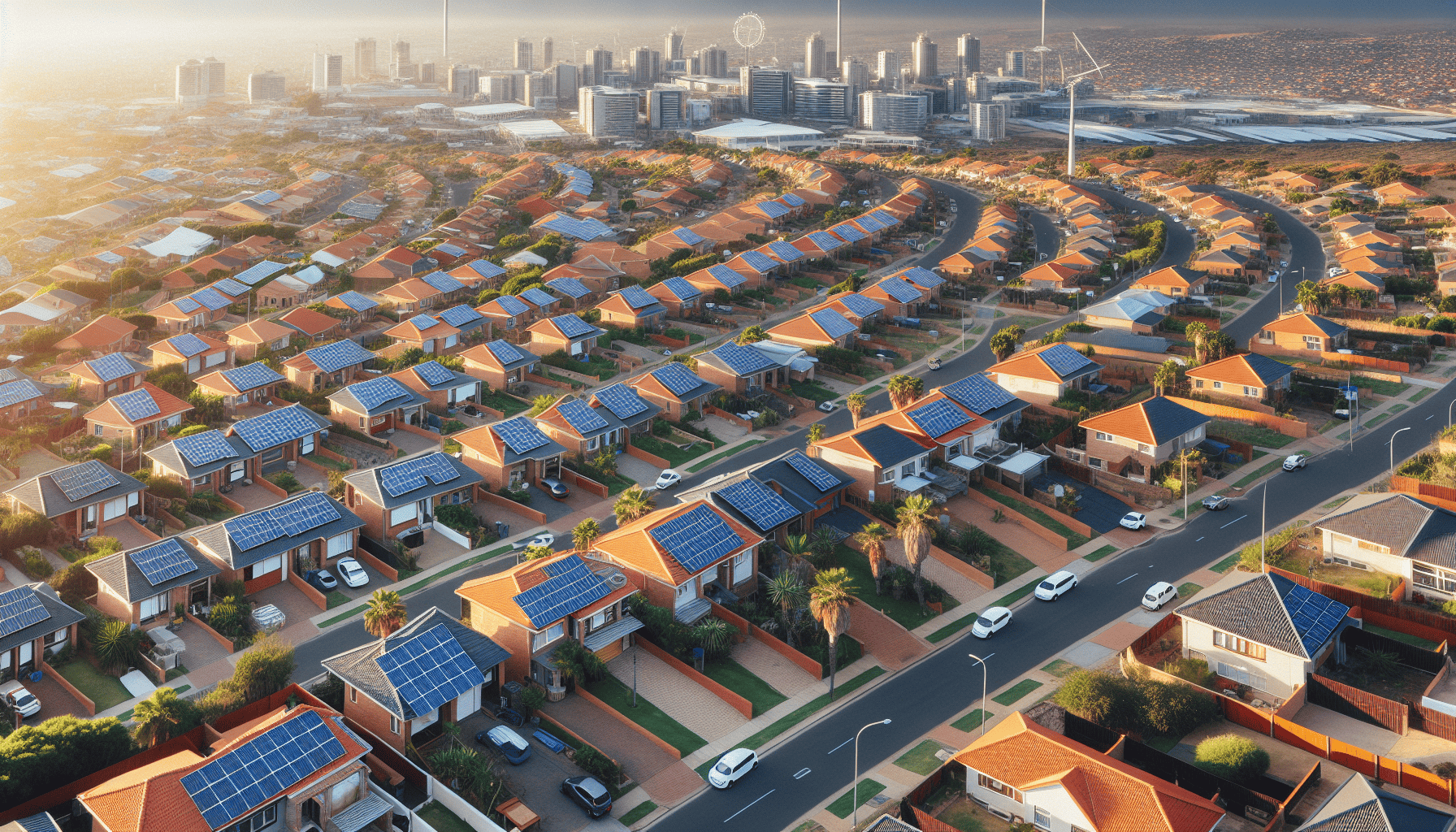South Africa, blessed with abundant sunshine, is witnessing a transformation in its energy landscape, especially through the integration of solar power. As the nation seeks sustainable and reliable energy solutions, solar energy emerges as a promising contender to meet its growing electricity demands while mitigating environmental impact.
Harnessing Solar Potential
South Africa's geographical position offers significant solar potential, with vast regions experiencing sunny and clear skies for most of the year. This natural advantage paves the way for solar energy systems to thrive, making them a viable option for residential, commercial, and industrial sectors.
Technological Advancements
Recent advancements in solar technology have significantly enhanced the efficiency and affordability of solar panels. Innovations such as bifacial solar panels, which capture sunlight from both sides, and perovskite solar cells, known for their high efficiency and low production costs, are making solar power more accessible to South African households. These technologies promise increased energy output and a quicker return on investment, encouraging more homeowners to adopt solar solutions.
Government Incentives and Policies
The South African government has recognized the potential of solar energy in addressing the country's power challenges and is increasingly offering incentives to promote its adoption. Initiatives like tax rebates, subsidies for solar installations, and the easing of regulations on small-scale embedded generation are making it easier for residents to transition to solar power. These policies not only reduce the initial financial burden but also contribute to the long-term savings on energy bills.
Transforming the Residential Landscape
The integration of solar energy into the residential sector holds the potential to revolutionize how homes are powered. As more families install solar systems, dependence on the national grid decreases, leading to fewer power outages and a more stable energy supply. Additionally, the adoption of solar energy promotes environmental sustainability by reducing reliance on fossil fuels and decreasing carbon footprints.
Economic and Environmental Impact
The shift towards solar energy not only benefits individual households but also has broader economic implications. As demand for solar installations grows, so does the job market, creating employment opportunities in manufacturing, installation, and maintenance of solar systems. Furthermore, reducing reliance on coal-powered energy reduces carbon emissions, contributing positively to global climate goals and enhancing South Africa's commitment to renewable energy targets.
Challenges and Solutions
Despite its potential, solar energy adoption in South Africa faces challenges, such as the high upfront costs and the need for battery storage solutions to manage energy supply during non-sunny periods. However, continuous research and development are addressing these issues, with prices of solar systems gradually decreasing and battery technologies improving.
The Road Ahead
As South Africa continues to explore and invest in solar energy, the residential landscape is set for significant transformation. The future of solar energy in the country is bright, with ongoing advancements and supportive policies driving its growth. By embracing this renewable energy source, South African households stand to gain economic, environmental, and social benefits that will pave the way for a more sustainable and resilient energy future.
